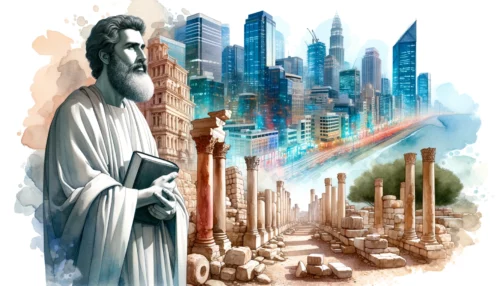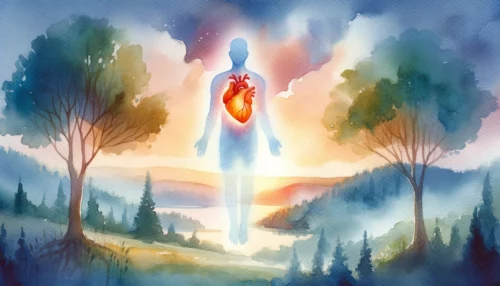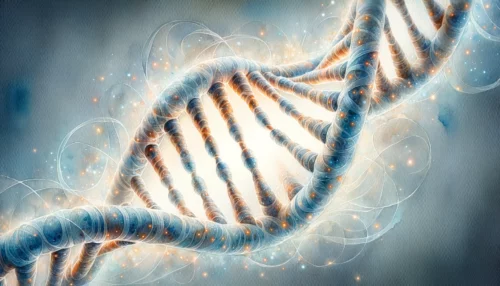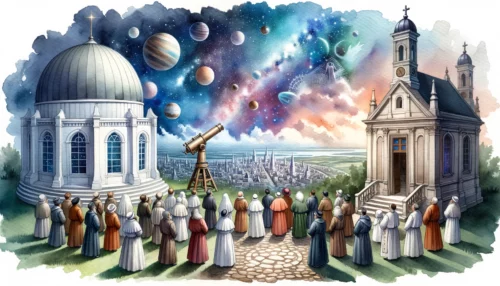Our journey to comprehend the unity of God’s sovereignty and human responsibility in the path to salvation is neither easy nor straightforward. This article aims to serve as a map through this intriguing terrain, acknowledging the vast landscape of God’s will and our free will. As we venture forth, it is crucial to hold onto two essential truths: firstly, God is sovereign, and secondly, human beings have a real responsibility in response to God’s offer of salvation.
Understanding the Sovereignty of God
The sovereignty of God refers to His absolute rule, control, and power over all creation. Within the Christian faith, God is acknowledged as the omnipotent, omniscient, and omnipresent ruler over the universe. He is the source of all life, and all things are under His authority. This attribute of God is highlighted throughout the Biblical text, most notably in the creation account where God, by His word alone, brought the universe into existence (Genesis 1).
To appreciate the extent of God’s sovereignty, let’s think about His omnipotence, omniscience, and omnipresence. Omnipotence means God is all-powerful, not limited by anything outside of Himself. In this respect, the parting of the Red Sea, the resurrection of Jesus from the dead, and numerous miracles performed throughout scripture speak of God’s unparalleled power (Exodus 14, John 11).
When we say God is omniscient, we mean He knows all things, including the past, present, and future. Not a leaf falls from a tree, not a bird flutters its wings, and not a human heart beats without God’s knowledge. A vivid picture of God’s comprehensive knowledge is found in the Psalms, where it is revealed that God is intimately acquainted with all our ways and even our thoughts from afar are known to Him (Psalm 139).
God’s omnipresence signifies that He is everywhere at all times. God’s spirit permeates all creation, sustaining and upholding it. The Psalmist beautifully illustrated this by affirming that there is no place where one can escape from God’s spirit or presence (Psalm 139).
God’s sovereignty does not imply a deterministic or fatalistic worldview where everything is merely the outworking of God’s decrees. Instead, it paints a picture of a loving and relational God who, in His wisdom, has crafted a world that includes genuine human freedom and responsibility, even though He remains ultimately in control.
With this understanding of God’s sovereignty, let’s explore its implications for salvation. We know that salvation is entirely a work of God, given to us by His grace. We see this in the Gospel accounts of Jesus’ death and resurrection, where God provided a way for humanity to be saved from sin and death (John 3:16). God, in His sovereignty, chose to offer salvation freely to humanity, and this act showcases His mercy, love, and justice.
God’s sovereignty is a core attribute that describes His absolute rule, control, and power over all creation. His sovereignty is illustrated through His omnipotence, omniscience, and omnipresence, and it is clear from the Bible that God, in His sovereign will, offers salvation freely to humanity. This gift is rooted in His mercy, love, and justice. By understanding the sovereignty of God, we gain insights into His character and His role in the process of salvation.
The Role of Human Responsibility in Salvation
While God’s sovereignty is an essential aspect of our salvation, human responsibility plays a significant role as well. The Bible tells us that while salvation is a gift from God, it requires a human response. We are called to exercise our freedom and agency by accepting this gift of salvation through faith.
Faith is trust in God, and it is through faith that we grasp the gift of salvation. This faith isn’t self-generated; it’s a response to God’s revelation of Himself, most clearly seen in the person and work of Jesus Christ. The New Testament consistently emphasizes this point, indicating that we are saved by grace through faith (Ephesians 2:8-9).
Repentance is another human responsibility that goes hand-in-hand with faith. Repentance means turning away from our sin and turning towards God. It involves an acknowledgement of our sin, a sincere sorrow over it, and a decision to abandon it. The call to repentance is ubiquitous in the teachings of Jesus and His apostles (Mark 1:15, Acts 2:38).
Another aspect of our responsibility involves obedience to God’s commands. Though we are not saved by our works, once we’ve received the gift of salvation, we’re called to live a life that reflects our new status as children of God. This obedience, as the apostle John puts it, is a natural outflow of our love for God (1 John 5:3).
We also bear the responsibility to persevere in our faith. The Christian journey isn’t always smooth; there are times of trial and temptation. Yet, we are called to remain steadfast in our faith, maintaining our trust in God’s promises even when circumstances become challenging (James 1:12).
Our ability to fulfill these responsibilities doesn’t come from within ourselves. Instead, it’s God who works in us, enabling us to believe, to repent, to obey, and to persevere. He doesn’t merely call us to these responsibilities; He equips us to fulfill them by His Spirit (Philippians 2:13).
Human responsibility in salvation involves faith, repentance, obedience, and perseverance. Faith is trust in God, and it is through this trust that we grasp the gift of salvation. Repentance, on the other hand, involves turning away from our sin and towards God. Obedience and perseverance are natural responses to our salvation, reflecting our new status as God’s children. While these responsibilities are ours to carry out, it’s ultimately God who enables us to fulfill them.
Harmonizing Divine Sovereignty and Human Responsibility
Understanding how divine sovereignty and human responsibility harmonize in the context of salvation can be a complex task. The two can seem contradictory, but within the Christian faith, they coexist in a divine mystery that eludes complete human comprehension.
We have the Bible’s clear testimony to the absolute sovereignty of God. God, being the creator and sustainer of the universe, has a plan for salvation and is the primary agent in accomplishing it. This is evident in the life, death, and resurrection of Jesus Christ, through which God initiated the redemption of humanity (John 3:16, Romans 5:8).
The Bible also emphasizes human responsibility. It consistently calls us to faith, repentance, obedience, and perseverance. These are not mere passive responses; rather, they are active engagements with God’s offer of salvation (Mark 1:15, James 1:12, Acts 2:38).
How can these two truths coexist? How does God’s sovereign rule work in conjunction with human free will? The answer lies in the nature of God himself. God, in His infinite wisdom and power, has created a world in which His perfect will can coexist with human freedom. This coexistence doesn’t diminish His sovereignty or make human responsibility meaningless; instead, it showcases the depth of His wisdom and the greatness of His power.
Even as God in His sovereignty extends the offer of salvation, He also provides the means for us to respond to that offer. He does not merely command us to believe, repent, and obey; He also enables us to do so by His Spirit (Philippians 2:13, Ephesians 2:8-9).
In this divine arrangement, human responsibility is not a challenge to divine sovereignty, but an expression of it. Our faith, repentance, obedience, and perseverance are responses that God Himself has made possible. They are ways through which we engage with God’s sovereign grace.
While this understanding does not resolve all the mystery, it points to a God who is infinitely wise and powerful, capable of crafting a plan of salvation that perfectly integrates His sovereignty with our responsibility.
In the context of salvation, divine sovereignty and human responsibility coexist in a divine mystery. God’s sovereignty doesn’t negate our responsibility; instead, it provides the basis for it. God is the primary agent of salvation, yet He also provides the means for us to respond to His offer. This interplay between God’s sovereignty and human responsibility showcases the depth of His wisdom and the greatness of His power.
Navigating the Divine Tapestry
The interweaving of divine sovereignty and human responsibility in the realm of salvation forms a beautiful, divine tapestry. Each thread, representing either God’s authority or our personal agency, is carefully intertwined to create a harmonious whole. This divine design demonstrates the depth of God’s wisdom and the magnitude of His power, revealing His perfect plan of salvation. The juxtaposition of God’s ultimate control and our genuine responsibility is not a paradox but a testament to the richness and depth of God’s design.
- How does your understanding of God’s sovereignty influence your view of salvation?
- What role does your personal responsibility play in your faith journey?
- How can the understanding of this divine mystery deepen your relationship with God?
The beauty of our faith lies not in having all the answers, but in trusting the One who does. May your faith be enriched and your trust deepened as you continue to marvel at the infinite wisdom and boundless grace of our Sovereign God.














